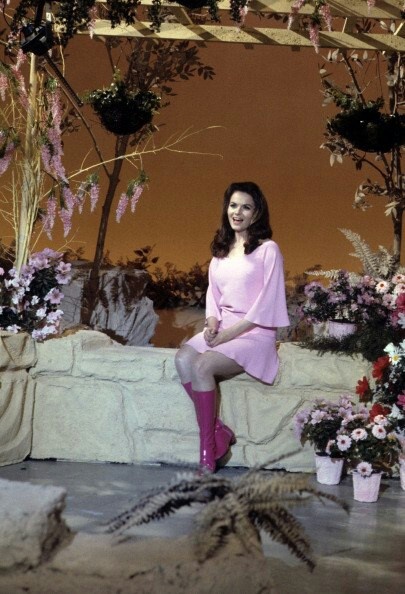
A Raw Reflection on Rural Roots and Unspoken Desires
Ah, Jeannie C. Riley. Just the name itself evokes a certain twang in the memory, doesn’t it? For those of us who came of age with the golden era of country music, her voice was a distinct, sometimes unsettling, but always authentic presence on the airwaves. And few songs captured the heart of her appeal—and indeed, a certain strain of the American experience—quite like “Country Girl”. Released in 1969, just a year after her monumental, rebellious anthem, “Harper Valley PTA”, “Country Girl” arrived not with the same explosive chart-topping fury but with a more subtle, enduring resonance. While “Harper Valley PTA” famously soared to number one on both the Billboard Hot Country Singles and the Billboard Hot 100 charts, “Country Girl” found a respectable home within the country top ten, peaking at number 7 on the Billboard Hot Country Singles chart. It wasn’t the sensation of its predecessor, but in many ways, it offered a more intimate, perhaps even more revealing, glimpse into the soul of Jeannie C. Riley and the lives she so vividly portrayed.
The story behind “Country Girl” is less about a scandalous exposé and more about an internal journey, a quiet yearning. Written by the prolific country songwriter L. E. White, the song feels as if it could have sprung directly from Riley‘s own experiences, having grown up in the small town of Anson, Texas. It’s a narrative that speaks to the heart of what it means to be a young woman from humble beginnings, transplanted into a world that, while offering new opportunities, can never truly erase the indelible mark of where you came from. The lyrics paint a picture of a girl who has moved to the city, seemingly making a life for herself, yet her thoughts constantly drift back to the simplicity, the familiarity, and perhaps the unfulfilled dreams of her rural upbringing. There’s a bittersweet nostalgia that permeates every line, a longing for something lost, or perhaps something that never truly was but remained an ideal.
The meaning of “Country Girl” runs deeper than just a geographical shift. It’s a poignant exploration of identity and the enduring pull of one’s origins. The “country girl” isn’t just a girl from the country; she represents a certain set of values, a particular way of seeing the world, and a perhaps a wistful innocence. Even amidst the bustling city, she finds herself humming old hymns, recalling the scent of honeysuckle, and remembering the unspoken promises of a simpler time. This song taps into that universal human experience of trying to reconcile who you are now with who you once were, or who you might have been. For many older listeners, this resonates profoundly. We’ve all had moments where we’ve looked back at our youth, at the places and people that shaped us, and felt that gentle tug of nostalgia. Perhaps we left a small town for a big city, or traded one way of life for another, but the echoes of our past never truly fade. Riley’s delivery, with that signature blend of earnestness and a touch of world-weariness, perfectly encapsulates this emotional landscape. She doesn’t just sing the words; she embodies the experience, making the listener feel as though they are right there with her, sharing in her reflections. It’s a testament to her artistry, and the enduring power of a well-crafted song, that “Country Girl” continues to evoke such a powerful sense of shared human experience, connecting us to our own personal histories and the quieter longings of the heart.